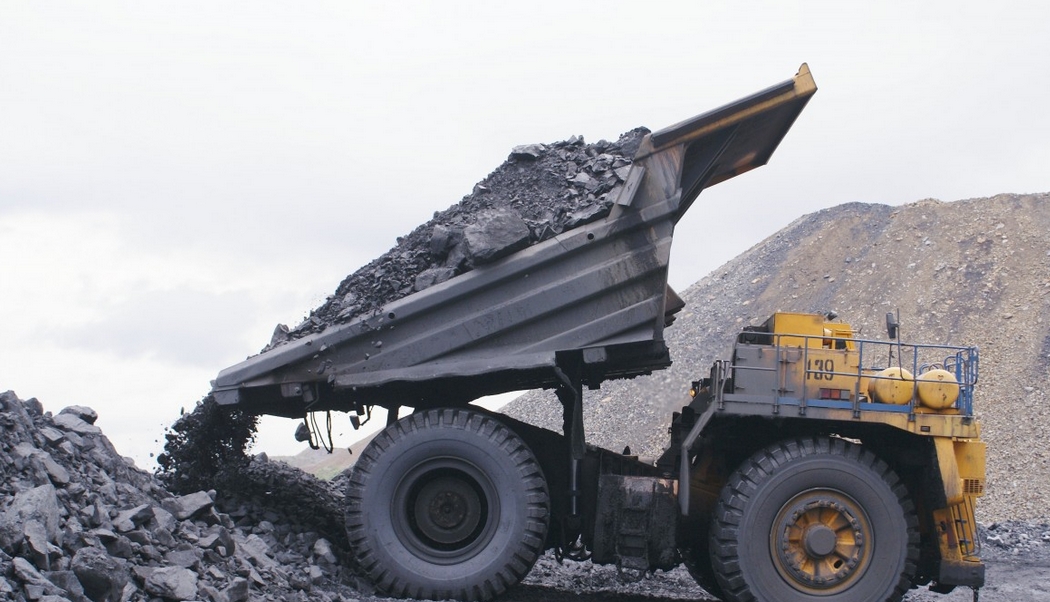
COVID-19 crisis accelerating “long-term decline of coal”
Even before the current COVID-19 crisis, coal was in trouble due to its high carbon content, coupled with high costs. But COVID-19 is accelerating that decline. And once coal is gone, it is not coming back.

C: Rab Lawrence
We know that the ongoing COVID-19 crisis is hastening the end of the fossil fuel era and making what was deemed unthinkable just a few months ago, thinkable.
This is despite what Donald Trump would have you believe with his repeated pro-oil propaganda.
Last week, speaking at a roundtable discussion in Dallas, according to the Washington Post, the president reported a “rosy picture of the petroleum industry’s recovery from the worst of the coronavirus pandemic.” But as usual with Trump, his interpretation was “one that clashes with the pain a lot of drillers still feel on the ground,” noted the paper.
Despite Trump’s blinkered beliefs, there are now daily reports reflecting how fast the energy landscape is changing.
For years, Oil Change International and many other groups have been pressuring governments and international credit agencies to stop funding fossil fuels abroad. Two pieces of reseach highlight once again how the international financial system needs radical reform away from fossil fuels.
Our colleagues at Carbon Tracker are warning in a new report that the funding of overseas fossil fuel projects by the UK Government are “likely to fail” and become “stranded in a Paris-compliant world.” This obviously creates “long term financial risks” to those lending money. Despite those risks, according to Global Witness, a staggering “96% of UK Export Finance’s energy-related gifts and hospitality were related to fossil fuel projects, with just 4% related to renewables”.
There are signs that the UK Govenment is belatedly beginning to act, though. Today it was announced that the British government is now actively “considering steps” to end overseas financial support for fossil fuel projects.
According to the Guardian, “senior civil servants are understood to be planning a new climate strategy that would phase out financial support for oil and gas infrastructure in developing countries ahead of the UN’s COP26 international climate talks next year.”
As often with these initiatives, the devil will be in the detail about how quickly disinvestment happens, but it is another indicator that we are entering the declining years of fossil fuel power. And some sectors of the industry look set to decline quicker than others.
Even before the current COVID-19 crisis, coal was in trouble due to its high carbon content, coupled with high costs. But COVID-19 is accelerating that decline. And once coal is gone, it is not coming back.
Mirko Schlossarczyk from the energy consultancy Enervis, told Clean Energy Wire today that the corona crisis is “accelerating the long-term decline of coal.”
That long term decline is because the filthy fossil fuel cannot compete with renewables which get cheaper by the day. Every day new renewables are coming on stream and the reality is we do not need coal for electricity generation.
Five days ago, researchers at the Department of Energy’s National Renewable Energy Laboratory, noted the incredible potential of offshore wind in the US:
“Offshore wind, with its potential for domestic electricity-generating capacity of more than 2,000 gigawatts (GW), could supply enough electricity to meet the needs of the entire United States two times over.”
They added that last year, despite president Trump’s dislike of the technology, “states doubled their commitments to offshore wind, announcing plans to add another 16 GW. More than 25 GW are already in development off the East Coast and in the Great Lakes.”
Every gigabyte of new wind or solar means less fossil fuels, predominantly coal. Last week, in the UK, Britain passed what is seen as a significant milestone when the country went two full months without using coal to generate power. Ten years ago, 40 per cent of the electricity was from coal.
Dr Simon Evans of Carbon Brief told the BBC: “So far this year renewables have generated more electricity than fossil fuels and that’s never happened before”, adding that “With gas also in decline, there’s a real chance that renewables will overtake fossil fuels in 2020 as a whole.”
Elsewhere in the UK, a licence for extending an opencast coal mine has been refused by the Welsh Government for the first time, due to climate change. “Refusing to authorise the licence extension ensures the coal remains in the ground and it will not contribute to global climate change, which is in the best interest of the people of Wales,” said a Welsh Government spokesperson.
Meanwhile, thousands of miles away in Australia, insurance companies linked to one of coal’s most controversial projects, Adani’s Carmichael mine are reported to be “distancing themselves” from the project as international pressure mounts to stop funding fossils.
Not one insurance company should be prepared to underwrite a new #coal project in the midst of the #ClimateCrisis.@LibertyMutual and @HDI_UK made the right move today.
Find out more and take action: https://t.co/IYbwGk3SI0 #StopAdani pic.twitter.com/rBKy4gKvqh
— Market Forces (@market_forces) June 12, 2020
Three insurance companies: Liberty Mutual Insurance, HDI, and AXA all “said they had no active policies in place for Carmichael and had ruled out insuring the project in the future”, according to Bloomberg.
Meanwhile, breaking news from New South Wales is that a court has just ruled that land surrounding another highly controversial coal mine owned by resources giant Glencore, that in the words of the Sydney Morning Herald “cannot be classified as farmland in a landmark decision that could expose miners to millions of dollars in higher rates and taxes.”
The judgement led prominent climate activist in the country, Blair Palese, to tweet how without the subsidies “coal was gone.” Indeed, coal could be gone quicker than we think.
https://twitter.com/blairpalese/status/1271405570537353222
